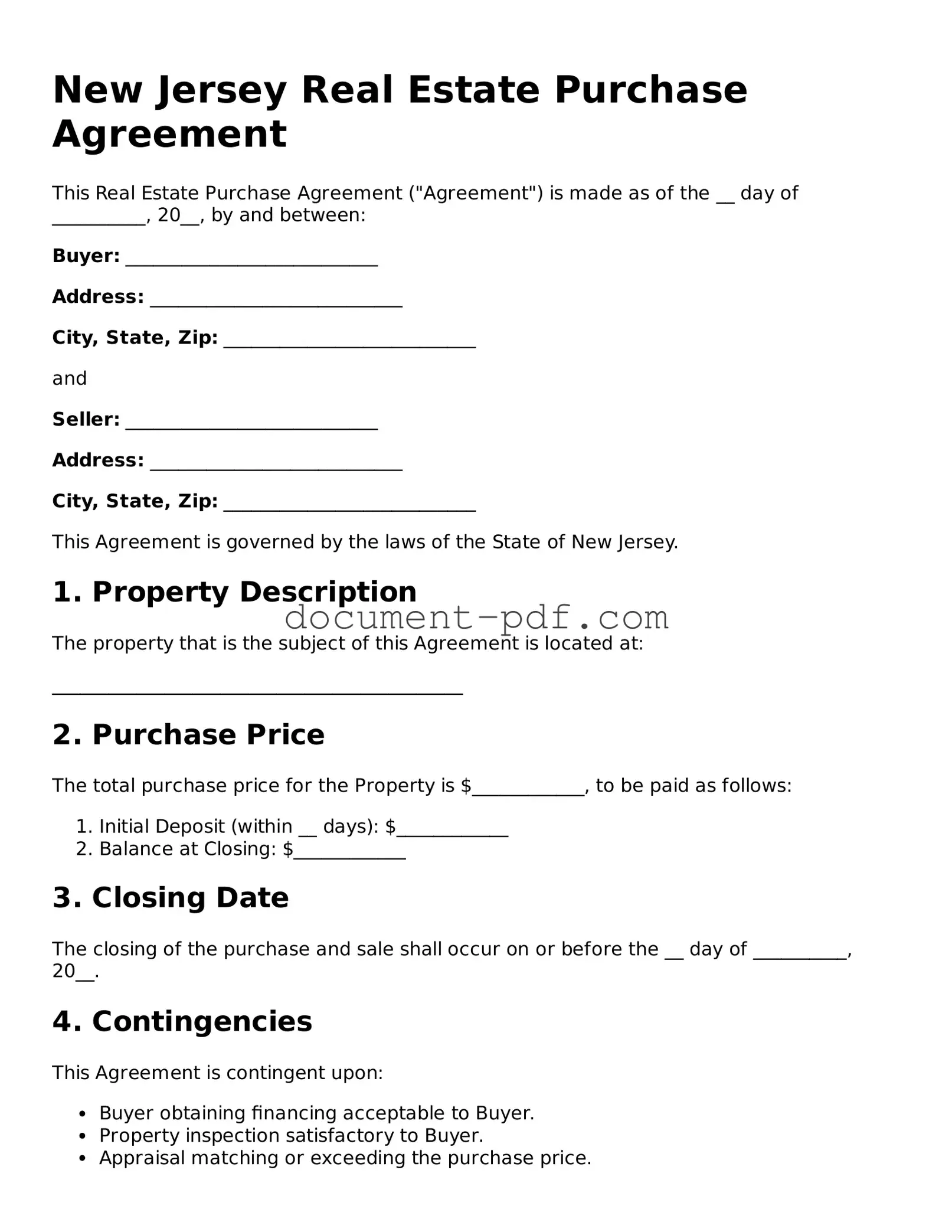Attorney-Verified New Jersey Real Estate Purchase Agreement Template
The New Jersey Real Estate Purchase Agreement is a legal document that outlines the terms and conditions of a property sale between a buyer and a seller. This form is essential for ensuring that both parties understand their rights and obligations during the transaction. Ready to take the next step? Fill out the form by clicking the button below.
Access Real Estate Purchase Agreement Editor Here

Attorney-Verified New Jersey Real Estate Purchase Agreement Template
Access Real Estate Purchase Agreement Editor Here
Finish the form without slowing down
Edit your Real Estate Purchase Agreement online and download the finished file.
Access Real Estate Purchase Agreement Editor Here
or
Click for PDF Form
